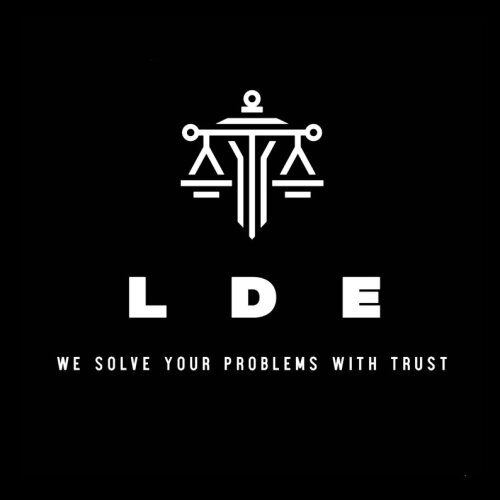Best Energy Regulatory Law Lawyers in Islamabad
Share your needs with us, get contacted by law firms.
Free. Takes 2 min.
List of the best lawyers in Islamabad, Pakistan
About Energy Regulatory Law in Islamabad, Pakistan
Energy Regulatory Law in Islamabad, Pakistan encompasses the set of rules, policies, and regulations that oversee the generation, transmission, distribution, and consumption of energy. This primarily includes electricity, oil, gas, and renewable sources. The framework aims to ensure fair competition, consumer protection, environmental compliance, and efficient management of resources. Regulatory bodies such as the National Electric Power Regulatory Authority (NEPRA) and the Oil and Gas Regulatory Authority (OGRA) are tasked with implementing these laws and supervising the actions of energy companies and utilities across the country, including Islamabad.
Why You May Need a Lawyer
Navigating Energy Regulatory Law can be complex, given the technicalities of energy production, distribution, tariffs, and compliance requirements. Here are common scenarios in which legal assistance is important:
- Interpreting regulatory requirements for setting up energy projects or investments
- Resolving disputes with power distribution or production companies
- Participating in regulatory hearings and licensing applications
- Addressing issues related to tariffs, billing, or consumer rights
- Ensuring compliance with environmental and safety regulations
- Engaging in mergers, acquisitions, or restructuring of energy companies
- Securing government incentives or handling contractual negotiations
Energy Regulatory Law attorneys provide clarity on local regulations, represent clients before regulatory authorities, and protect your interests during complex legal proceedings within the energy sector.
Local Laws Overview
Islamabad abides by the broader regulatory framework governing energy in Pakistan, along with specific local by-laws. Key aspects include:
- Regulatory Authorities: NEPRA regulates the electricity sector, setting tariffs and licensing market participants. OGRA regulates oil and gas, overseeing prices, distribution, and licensing.
- Licensing and Compliance: Entities involved in energy production, distribution, or supply must obtain licenses and adhere to ongoing compliance audits.
- Tariff Setting: Energy prices are determined and revised periodically by regulatory authorities, considering factors like fuel costs, demand, and investment needs.
- Environmental Oversight: Energy projects must comply with environmental standards set by the Pakistan Environmental Protection Agency (Pak-EPA) and other agencies.
- Consumer Protection: Dispute resolution mechanisms exist for consumer grievances relating to overbilling, disruptions, or unfair practices.
- Renewable Energy Incentives: Special policies support investments in solar, wind, and other renewable sources, including preferential tariffs and simplified licensing.
Frequently Asked Questions
What are the main regulatory authorities for energy in Islamabad?
The principal authorities are the National Electric Power Regulatory Authority (NEPRA) for electricity, and the Oil and Gas Regulatory Authority (OGRA) for oil and gas sectors. The Pakistan Environmental Protection Agency (Pak-EPA) also plays a significant role in environmental compliance for energy projects.
How do I obtain a license for an energy project?
You must submit a formal application to NEPRA or OGRA, depending on the project type. The process involves technical, financial, and environmental evaluations before a license is granted.
What is the process for resolving overbilling or supply disputes with energy companies?
Initial complaints can be filed directly with your energy service provider. If unresolved, you can escalate the issue to NEPRA’s or OGRA’s dedicated complaint cells for investigation and resolution.
Are there incentives for renewable energy projects in Islamabad?
Yes, there are dedicated policies offering preferential tariffs, streamlined licensing, and reduced duties on equipment imports to encourage solar, wind, and hydro projects.
What are the environmental compliance requirements for energy projects?
Energy projects must conduct Environmental Impact Assessments (EIA) and acquire approvals from Pak-EPA. Ongoing compliance with emission levels and waste management is also mandatory.
Can an individual consumer file a case against an energy company?
Yes, individuals can file complaints regarding service issues, tariff disputes, or unfair practices with the relevant regulatory body or consumer courts.
How are energy tariffs determined and can they be challenged?
Tariffs are determined by regulatory authorities after public hearings and stakeholder feedback. They can be legally challenged through formal petitions or appeals.
What legal challenges do foreign investors face in energy projects?
Foreign investors must navigate licensing requirements, local regulations, taxation, and sometimes land acquisition issues. Legal guidance ensures compliance and risk mitigation.
What is the role of alternative dispute resolution in energy regulatory matters?
Alternative dispute resolution methods like mediation and arbitration are available to help parties resolve conflicts without extended litigation, often as mandated by regulator guidelines.
How can a lawyer help with energy sector mergers and acquisitions?
Legal experts conduct due diligence, negotiate contracts, ensure regulatory approvals, and handle compliance with competition laws, safeguarding your interests throughout the transaction.
Additional Resources
If you require more information or support on Energy Regulatory Law in Islamabad, consider the following organizations and bodies:
- National Electric Power Regulatory Authority (NEPRA)
- Oil and Gas Regulatory Authority (OGRA)
- Pakistan Environmental Protection Agency (Pak-EPA)
- Ministry of Energy (Power Division and Petroleum Division)
- Consumer protection forums and offices in Islamabad
- Local bar associations with energy law practice groups
- Chambers of commerce and industry associations
Next Steps
If you need further legal assistance regarding Energy Regulatory Law in Islamabad, consider the following steps:
- Identify the nature and scope of your legal issue, whether it relates to compliance, disputes, or new projects.
- Collect all relevant documentation, such as contracts, regulatory correspondence, or notices.
- Engage a qualified lawyer specializing in Energy Regulatory Law to review your case.
- Schedule a consultation to discuss your objectives and get a practical assessment of your options.
- Work with the lawyer to prepare filings, attend hearings, or pursue negotiations as required.
- Stay updated on regulatory requirements to remain compliant and avoid future disputes.
A specialized energy regulatory lawyer can provide detailed advice, represent your interests before the authorities, and help you navigate the often complex regulatory environment effectively.
Lawzana helps you find the best lawyers and law firms in Islamabad through a curated and pre-screened list of qualified legal professionals. Our platform offers rankings and detailed profiles of attorneys and law firms, allowing you to compare based on practice areas, including Energy Regulatory Law, experience, and client feedback.
Each profile includes a description of the firm's areas of practice, client reviews, team members and partners, year of establishment, spoken languages, office locations, contact information, social media presence, and any published articles or resources. Most firms on our platform speak English and are experienced in both local and international legal matters.
Get a quote from top-rated law firms in Islamabad, Pakistan — quickly, securely, and without unnecessary hassle.
Disclaimer:
The information provided on this page is for general informational purposes only and does not constitute legal advice. While we strive to ensure the accuracy and relevance of the content, legal information may change over time, and interpretations of the law can vary. You should always consult with a qualified legal professional for advice specific to your situation.
We disclaim all liability for actions taken or not taken based on the content of this page. If you believe any information is incorrect or outdated, please contact us, and we will review and update it where appropriate.

















